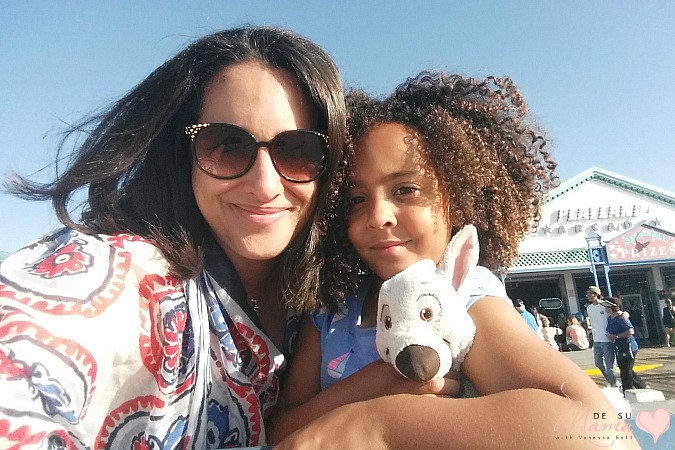Alina is my pride and joy. She is beautiful and perfect in all ways because she came from the love between my Husband and I. We unconditionally love her. Even the parts of her that test my patience are qualities that will, inevitably, make her a tenacious, successful woman. That’s my plan, anyway. Everyday I learn more about motherhood, and it is I who needs a lesson in resiliency. And faith. And patience. And ya, you get the idea. By the way, if anyone had any doubt, my Sister is amazing and I love from here until eternity.
Okay, down to business…. if you are reading this without having read Part One, please click here.
The Five Personal Characteristics Related to Resilience:
{Full text here}
According to the article, fostering these five characteristics in children will be positively related to their resilience.
1. Cognitive Superiority:
Basically, intelligence. It is still unclear how much of one’s intelligence is influenced by genes {nature} or environment {nurture}, but providing an intellectually challenging environment will only help your cause. Practical applications of this characteristic can be exposing your infant to a variety of objects and environments, speaking to your children and expanding their utterances, and reading to them. Alina’s pediatrician regularly inquires if I read to her on a daily basis. It did not occur to me how influential this simple act can be when used consistently until I refreshed myself on this article. It is truly a wonderful cognitive exercise, in addition to language development.
2. Autonomy:
It is important for one’s social development to be able and willing to accomplish tasks on one’s own. Practical applications include giving your child age appropriate tasks in repetition allowing your child to learn a process and complete it independently, especially tasks with meaning to their lives. Examples for a toddler would be hand washing and cleaning up toys. People who are autonomous think for themselves and do not succumb to peer pressure.
3. Androgyny
Displaying characteristics at appropriate times that traditionally correspond to the opposite gender is slated as being resilient. Children who defy their typical gender role and engage in non-sexed typed activities are resilient. Males are more affectionate and females more adventurous. Practical applications include the simple acceptance of this behavior. Also, modeling androgynous behavior can help foster this characteristic. So, tell your partner that they should get to washing those dishes so that the kid can grow up resilient! Ha!
4. Social Skills:
Being able to socialize and interact with people from all backgrounds, being pro-social and sensitive to others emotions, is to be resilient. Practical applications include modeling and rewarding behaviors such as: sharing, telling the truth and empathy. Inclusion of people from all backgrounds, ages and special needs into your child’s environment will also enhance their social skills.
5. Internal Locus of Control:
Believing you have influence over your fate or destiny, that the decisions you make will affect what happens to you, is classified as being resilient. Practical applications that foster this characteristic is having your children participate in activities in which they have control over the outcome, which also have real meaning over their lives. Examples would be allowing toddlers to feed and dress themselves. Encourage this behavior and demonstrate how they completed it on their own.
So there they are. The five characteristics that positively relate to resiliency. So many of these tips are things we already do, as good parents, on a daily basis. For me, however, having an established goal {a specific word} that I am shooting for, helps me to stay focused on my ultimate reward: raising a resilient and fantastic adult.
I hope this information has helped just one caregiver, one parent, one first time Mom that over-thinks and over-analyzes everything {including whether she is raising the best kid she can}. Life is not always easy, and sometimes it dishes out some pretty gnarly stuff. I want my Daughter to be the one that bounces back, maybe bruised, but no less determined. I have personally seen some amazing kids, not only overcome, but flourish!, despite some disgustingly, horrendous conditions. It is truly an awe inspiring thing to witness. Those kids are resiliently PERFECT, and have inspired me in so many ways.
For even more information on promoting resilience visit:
A Guide to Promoting Resilience in Children: Strengthening the Human Spirit.
There is great information in this guide, including application, tasks and examples for ages from birth to eleven years. I have not read the article entirely, only to the age bracket relevant to our family, so please let me know if you find anything else worth noting!
Happy parenting!




1 Comment
Raising Independent Kids: Our Closed Door Experience at Kidville - De Su Mama
December 30, 2014 at 10:55 pm[…] For those that have been reading awhile, you might guess that Alina’s temperament can lean towards the cautious side. She is independent by nature, questioning everything and challenging me constantly, but she has never been one to stray from my side much. In my professional experience in social services, I’ve worked with kids that have endured real life stories that I wouldn’t even think about. Some of those kids make it out, and UP, because of their resiliency. I’ve always wanted to raise my children to possess that inner strength, writing about it in a two part series on raising independent kids. […]